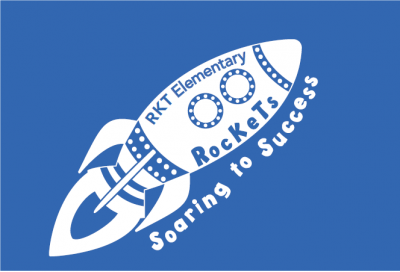Communication Plan
Communicating Student Learning
RKT Elementary believes that working collaboratively with all of those involved in the education of students enhances the ability of the school to effectively assist students in their learning. The cornerstone of the collaborative process is effective communication between the partners. A shared understanding of the academic expectations of the students and the manner that these goals will be monitored and articulated to the partners is the basis for this School Communication Plan.
Parents/guardians can become more knowledgeable about learning outcomes by attending information sessions at school, reading the curriculum information that the school provides, observing your student’s school work, monitoring homework, asking your student about school, asking teachers questions about curriculum, and attending Open Houses at school.
How Teachers Assess and Evaluate Student Learning
In order to provide all students with ample and fair opportunity to demonstrate their achievement of the expected learning outcomes, teachers use a variety of different assessment methods. Students not only learn in different ways (referred to as learning style), they also demonstrate their learning in different ways. Teachers use a range of methods, realizing that any one method suits some students more than others. In addition, gathering information on student learning from several different types of tasks ensures that the teacher has a fuller and more accurate picture of student knowledge and skill sets. This enables not only clearer communication with students and parents/guardians, but also allows the teacher to plan more effectively for individuals and groups of students.
At RKT our goal is to continue to offer a balanced assessment that reflects the diversity of our learners. In meeting this goal, teachers will assess student learning using some of the following methods: portfolios, work samples, models, journals, reports, logs, presentations, performances, graphic/visual representations, experiments, quizzes, tests, checklists, and observations. While no one teacher would necessarily use all of the above methods with each student, every teacher is committed to a balanced and fair approach to assessing student learning. Your student’s teacher would be pleased to discuss how he/she accomplishes this goal.
Communicating Student Learning
Just as there are many ways for student learning to be assessed, there are also many ways for that information to be communicated to parents/guardians, students, and other teachers. These include: Curriculum Night, Open Houses, monthly school and classroom newsletters, calendars, special events, student’s homework (especially interactive activities for the student and parents/guardians), communication journals, agenda books as a two way communication vehicle, e-mail, school webpage, reading-at-home programs, monthly assemblies, phone calls, collaborative goal- setting, performances, portfolios, conferences and report cards. Some of these possible ways for communicating student learning in relation to the expected learning outcomes will be undertaken on a school-wide basis and others pertain to individual classes and teachers.
The Halifax Regional School Board has been working hard to provide consistent delivery of curriculum and communication to all schools in the Board. As a result, the elementary schools in HRSB have moved to three report cards/ year. This change will not only heighten communication, but also increase contact with parents/guardians. There will now be report cards sent home in December, April and June. Just as our curriculum planning and assessment are focused on the learning outcomes outlined in our provincial curriculum guides, these reports will provide information about your student’s progress in meeting these outcomes.
Students Requiring Additional Support
RKT is committed to supporting the learning of all students. The teachers believe in the early identification of students requiring extra support. Early identification and timely intervention is the most effective approach in meeting the needs of students. Parents are informed before any intervention, such as resource support, takes place.
The school has established a process for the identification, assessment, and program planning for students with special needs. Classroom teachers, resource teachers, and parents may initiate and/or assist in identifying students with special needs. In some cases, when a student is identified as having special needs, a referral is made to the school program planning team. The program planning team consists of the principal, learning centre teacher. resource teacher, classroom teachers and parent/guardian (as needed).
Parents are consulted and written permission is required for any formal individual assessment. Parents are informed of the test results. The test results, along with other information, will be used in making adaptations to the student’s program or developing an Individual Program Plan (IPP), of which parents will be well informed.
Parental Concerns
Throughout the year there may be questions and concerns that arise concerning student progress. If there is a concern, you are encouraged to contact the appropriate teacher first. A meeting can be arranged with the teacher. If a follow up meeting is arranged with the administration, resolution of the matter raised will involve the teacher, even if the teacher is not present at all meetings. The goal is to resolve the issue in a climate of mutual respect while maintaining the dignity of all concerned and keeping in mind the best interest of the student.
If the standard forms of communication to parents prove to be inappropriate (eg. ESL parents), alternate methods of communication will be pursued to ensure that all parents have a clear understanding of their student’s progress.
Review of the School Plan
The School Plan for Communicating Student Learning will be reviewed and amended as needed by the School Advisory Council in consultation with the principal and staff. This review will take place in conjunction with the annual updating of the School Improvement Plan.
